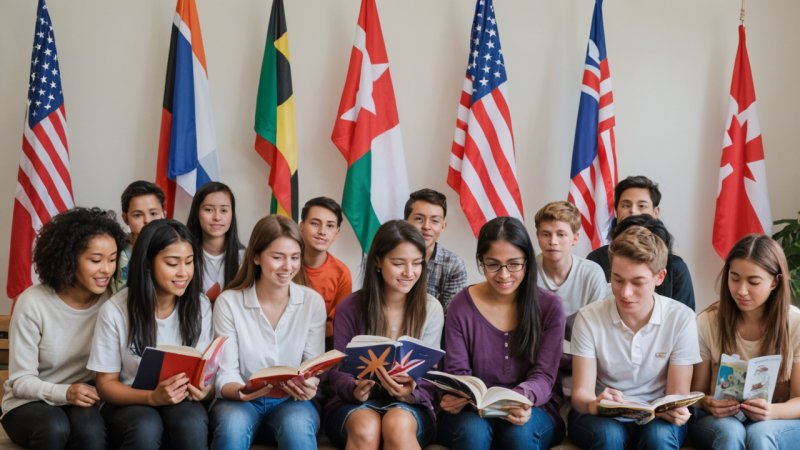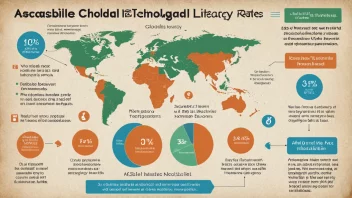Cross-cultural literacy exchange programs are powerful initiatives that not only enhance educational outcomes but also foster mutual understanding and respect among diverse cultures. These programs create opportunities for participants to immerse themselves in different cultural environments, promoting literacy and learning in innovative ways. Here are some of the most significant benefits of engaging in these transformative experiences.
1. Enhanced Language Skills
One of the primary benefits of cross-cultural literacy exchange programs is the improvement of language skills. Participants often have the chance to learn a new language or enhance their proficiency in a language they already know. This immersion experience allows for:
- Practical Application: Engaging with native speakers helps learners practice in real-world settings, improving their conversational abilities.
- Cultural Context: Understanding cultural nuances and idiomatic expressions enriches language comprehension.
- Confidence Building: Regular interaction in a foreign language boosts confidence levels in speaking and writing.
2. Broadened Cultural Perspectives
Cross-cultural literacy exchange programs provide participants with the chance to experience different ways of life, fostering a deeper appreciation of global diversity. The exposure to various cultural practices and beliefs leads to:
- Empathy: Participants learn to see the world through others' eyes, which can reduce prejudices and stereotypes.
- Critical Thinking: Engaging with diverse viewpoints encourages participants to think critically about their own cultures and beliefs.
- Global Awareness: Understanding global issues from multiple perspectives prepares individuals to be informed global citizens.
3. Improved Literacy and Educational Outcomes
These programs often focus on literacy development, which can lead to significant improvements in educational outcomes. Participants benefit from:
- Tailored Learning Experiences: Programs frequently adapt their teaching methods to suit different learning styles, making education more effective.
- Access to Resources: Participants may gain access to educational materials and methods that are not available in their home countries.
- Motivation: The excitement of learning in a new environment can inspire a lifelong love for education.
4. Building Lasting Relationships
Cross-cultural literacy exchange programs create opportunities for participants to forge meaningful relationships with individuals from different backgrounds. These connections can lead to:
- Friendship: Participants often form friendships that transcend national borders, leading to a more interconnected world.
- Networking Opportunities: Establishing relationships with peers and mentors can open doors for future collaborations and career advancements.
- Cultural Exchange: Participants can share their own cultures, leading to a rich exchange of ideas and traditions.
5. Personal Growth and Development
Engaging in cross-cultural literacy exchange programs can lead to significant personal growth. Participants often experience:
- Increased Independence: Navigating a new culture fosters self-reliance and adaptability.
- Enhanced Problem-Solving Skills: Facing challenges in a different environment encourages creative and critical thinking.
- Broader Worldview: Exposure to different lifestyles and philosophies can lead to a more well-rounded perspective on life.
In conclusion, cross-cultural literacy exchange programs offer invaluable experiences that enhance language skills, broaden cultural perspectives, improve literacy and educational outcomes, build lasting relationships, and promote personal growth. By participating in these programs, individuals not only enrich their own lives but also contribute to a more understanding and interconnected world. Encouraging more people to engage in these initiatives can help cultivate a future where cultural diversity is celebrated and valued.






